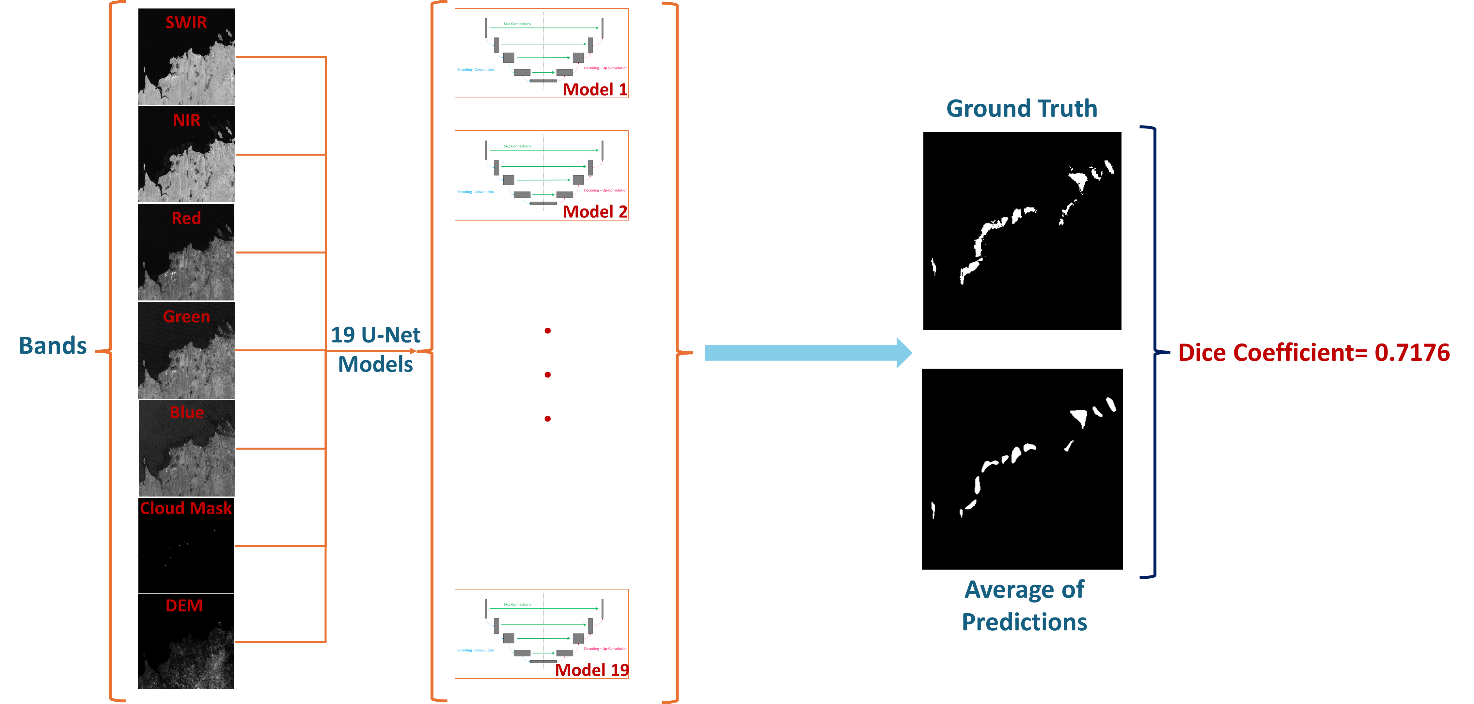Q&A with 2020 Advance Alzheimer’s Research with Stall Catchers Data Science Challenge MATLAB Bonus Award Winners
Today’s Blog feature is a Q&A with Azin Al Kajbaf and Kaveh Faraji, MATLAB Bonus Award Winners of Clog Loss: Advance Alzheimer’s Research with Stall Catchers Challenge
Azin Al Kajbaf and Kaveh Faraji are PhD students at the University of Maryland in the Civil Engineering department. Their research focuses on Disaster Resilience and on risk assessment of hazards such as flood and storm surge. Their work involves employing probabilistic methods, geospatial analysis, and machine learning approaches for assessment of natural hazards.


INTRODUCTION
In September 2020, MathWorks sponsored a Data Science challenge: Clog Loss: Advance Alzheimer’s Research with Stall Catchers in collaboration with DrivenData. In this challenge, participants were tasked with building machine learning models that could classify blood vessels in 3D image stacks as stalled or flowing. The exceptional challenge dataset came from Stall Catchers, a citizen science project that crowdsources the identification of stalls using research data provided by Cornell University’s Department of Biomedical Engineering. There were 924 participants with 1367 entries in the competition. You can meet all the winners of the challenge at DrivenData’s Meet the Winners Blog.
Today in this blog you will meet with the MATLAB Bonus Award Winners Azin & Kaven and learn about their current work and approach for the challenge.
Q&A with Azin & Kaven
What motivated you to compete in this challenge?
Due to our research, we became acquainted with machine learning methods such as Artificial Neural Networks and Gaussian Process Regression, etc. We were interested to learn more about these methods so as a next step we started to study deep learning recently. We thought this skill might be useful in our research, too. We decided to participate in deep learning challenges because we believed that it could help us to learn these methods more effectively.
What approach did you followed for solving the challenge?
At first, we tried approaches that are mostly used in human action recognition. However, after a while we tried an approach that in our opinion was simple, faster and more suitable to the nature of the videos for recognizing stalled and flowing vessels. The approach that gave us the highest score was converting the videos to a combination of images and using transfer learning. The steps of the approach are as follows:
- Select a suitable set of input data from the training set which we thought might give us good results.
- Split videos to 4 equal groups of frames.
- Obtain the average of the pixels of frames in each group and used that as the representative of these frame in our training approach.
- Construct a single image that consisted of the mean of these groups of frames.
- Use a deep neural network (with retraining ResNet18) to classify testing videos as stalled or flowing.
Check out team AZ_KA’s full write-up and solution in the competition repo.
Are you and your team users of MATLAB in your research work or you used MATLAB first time for the competition?
We both use MATLAB as our primary programming language for our academic work and extracurricular research. However, we were fairly new to deep learning toolbox when we started this competition.
How do you use MATLAB for your research work?
We have been using MATLAB for numerous projects. We mostly use it for data mining and cleaning, building predictive models, performing risk and uncertainty analysis, etc.
What big project you are working on right now?
Azin: I am currently using MATLAB for a project which includes building predictive models for downscaling of future climate change scenarios to incorporate in precipitation frequency estimates.
Kaveh: I am using MATLB for improving predictive models used to assess storm surge elevation in coastal areas of the United States.
Was MATLAB your first choice of tool to work ? What other tools/languages are you familiar with ?
Yes, most of the time. MATLAB has a through documentation which makes it easy to find what you are looking for and if we cannot find something in documentation, MATLAB Answers and File Exchange are the next best options to go to. We are also familiar with Python and R.
How Did the Competition Help You in your Work?
For this competition we used MATLAB deep learning toolbox which we were fairly new to it. Since we were experienced in using machine learning toolboxes for our research and we were really interested in these capabilities and eager to learn more, the competition provided a valuable opportunity and incentive for us to do so.
Do you think the skills you gained using these tools has helped you in your professional career? If so, how?
We believe that learning new skills (e.g. working with deep learning toolbox in here) open your mind to new possibilities for coming up with more innovative solutions. We think that we will probably use this new skill set in our research projects in future.
Did your hands-on experience of in the competition help to prepare you for your first role in industry?
Deep learning is a tool which has an increasing demand and application in various fields and different industries try to take advantage of its capabilities. So, we think that having this skill is helpful for our future role in industry.
What advice would you give young engineers seeking employment or going for research projects?
We suggest learning new skills and tools even if they are not directly related to what they are doing at the moment. We believe that learning new skills will help you to be more innovative and think outside the box.
Is there any difficulty while using MATLAB toolboxes that you felt, especially in-regards to open source or any other tool that u use?
It is dependent on the toolbox. For example, we have not encountered any major issues in machine learning toolboxes such as regression learner, classification learner, Neural Net. They come with a through documentation and are easy to work with and we think they are mostly as good as other open-source languages and better for some applications. We can easily find solution to our problem in either documentation or MATLAB Answers. However, when we were working with deep learning toolbox, we noticed that the documentation and examples are not as complete and sometimes we had issues that we could not easily find a solution for.
Is there anything else that you would like to add?
We wanted to thank you for sponsoring these competitions. They provide a great opportunity for learning new skills and features and applying them to real-world problems.
We also want to thank MathWorks team for developing deep learning toolbox. What we like most about it, is that it is very easy to learn and use, especially if you have previous experience in programming with MATLAB. We see that with each release, MATLAB adds new features and examples to its deep learning toolbox and documentation, and we are excited about capabilities that will be added to this toolbox in the future releases.
–
Thank you so much Azin & Kaven for taking your time to share your experience. It’s great to learn more about how you solved this challenge and look forward to seeing future updates!
What’s Next ?
I hope our last year’s winners inspired you to participate in data science challenges and test your skills with real world datasets. Because MathWorks and DrivenData team is working again to bring another challenge soon on an exciting new computer vison dataset. It will give you the opportunity to learn new skills and win some prize money. Suit Up!!
- Category:
- Data Science,
- Team achievements









Comments
To leave a comment, please click here to sign in to your MathWorks Account or create a new one.